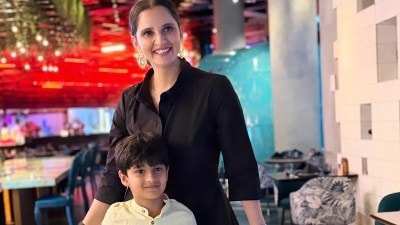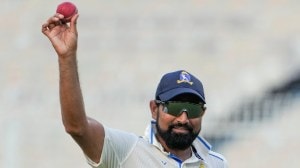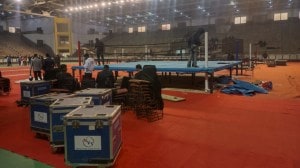Child legislators8217; wrest welfare benefits
DECEMBER 12: They have had night schools opened for themselves, lobbied successfully for handpumps in their villages and locked horns with...

DECEMBER 12: They have had night schools opened for themselves, lobbied successfully for handpumps in their villages and locked horns with a liquor lord. This is what the young parliamentarians of the villages covering Silora block of Ajmer district have achieved for their downtrodden community.
The coup de grace, of course, was the removal of their major irritant the local liquor shop situated right across one of their schools which has finally been shut down. Democracy in all its glory reigns supreme here under the able administration of the Bal Sansad Children8217;s Parliament, the third elected into office since its inception in 1993.
8220;My government got a water tank constructed at Sargaon village after the people there came to us with a representation,8221; says 8220;Prime Minister8221; Bagchand Devi, a 13-year-old girl from Balapura village.
She has a healthy competitive working relationship with Opposition leader Gita, 13, of Gwala party. There are two political parties and the ruling party right now isthe Ujala party. Gita professes to be satisfied with the way the 8220;Prime Minister8221; runs the show. 8220;I often fight with the Prime Minister8217; to clear my proposals. Sometimes she listens, sometimes she doesn8217;t. We have been successful in opening a night school near Tilonia village,8221; she says.
The monitoring and administration of the night schools are done by the Children8217;s Parliament and Village Education Committees. The 8220;MPs8221; of the Children8217;s Parliament visit night schools regularly every month and discuss the problems needing immediate attention.
Parents initially dismissed the Children8217;s Parliament as a waste of time, feeling their children could be more fruitfully engaged in household chores. But it is now evident to them that it is a body which can enhance their own lives.
The Children8217;s Parliament is an integral component of the Social Work and Research Centre SWRC, the model experiment established by Banker Roy in Tilonia village in 1972. Its activities are integrated with the developmentalpriorities per se like safe drinking water, health and hygiene, environment, education and employment.
The Children8217;s Parliament at present has 16 members 11 girls and five boys. Roy is the 8220;President8221; and all proposals first go to him before being despatched to the 8220;Prime Minister8221; and concerned ministers. The 8220;MPs8221; are in charge of different activities operating in the block for which an annual budget of Rs 30,000 has been earmarked.
According to Ratan Devi, an administrator at SWRC, the villagers have realised that the quickest way to get their grievances addressed is to approach the Children8217;s Parliament which is in direct contact with the 8220;President8221;. 8220;They talk to the MPs8217; who then make a written representation to Roy,8221; she says.
Gita recalls that some parents had complained about teachers skipping classes at the night schools. Since then the 8220;MPs8221; have stepped up their monitoring to ensure that the teachers attend regularly.
At present, 62 nightschools are being run by the SWRC inSilora block. They are attended by over 2,000 rural working children, of which 65 per cent are girls. This, according to Ratan Devi, explains why females are always in majority in this Parliament.
The general practice prevailing here as in most other parts of the country is to send boys to regular day schools. 8220;Girls are sent to the night schools because they have household chores to attend to during the day,8221; she observes.
Elections for the new Children8217;s Parliament are just round the corner and there is excitement among the hopeful candidates. Bagchand Devi is satisfied with her government8217;s performance but feels that much more needs to be done. She would like to contest again but her parents hope to marry her off by then.
- 01
- 02
- 03
- 04
- 05






























